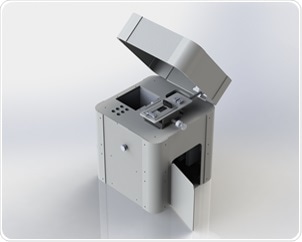Sep 14 2017
Epigem today (13th September) announced that one of its development instruments, MeChem, is being tested in a new clinical trial into the detection and cure of rare anemias. The company has filed two patents relating to the test methods and the associated system.

MeChem is the result of Epigem’s collaborative work with the University of Zurich on the EU’s CoMMiTMenT (Combined Molecular Microscopy for Therapy and Personalized Medication in Rare Anaemia Treatments) project, which is far beyond its original aims.
It works by looking at the behavior of red blood cells (RBCs) of anemic patients and comparing with healthy samples, in an assay based on observing the cells’ response to being stressed chemically and by mechanical deformation - diseased cells respond differently to healthy cells.
MeChem, a companion diagnostic device, could help identify which patients are most likely to benefit from the tested medicine and monitor the impact of different treatment doses on patients. It could also have applications to other diseases, such as diabetes.
Dr Tim Ryan, MD of Epigem, said:
It’s fantastic to be working with the University of Zurich on this. It is far exceeding my expectations to achieve a clinical trial so soon, once more reinforcing my belief in the benefits of multidisciplinary collaboration.
MeChem will be used to not just detect the diseases, but also to monitor drug efficacy, and so play a major role in finding a cure for some rare anemias and other diseases. This trial will demonstrate the effectiveness of the device and could lead to applications in other diseases. It holds great promise for sufferers of rare anemias.
Professor Dr Anna Bogdanova, a head of Red Blood Cell Research Group, Institute of Veterinary Physiology, University of Zurich, said:
It’s great to be working with Epigem on this cutting-edge technology.
Using MeChem we shall be able to follow the efficacy of new treatment we shall be testing for sickle cell disease and identify other patients responding to the medication. It is amazing to have such a fast, clear and robust assay at hand. We are sure, doctors will like it as much as we do.